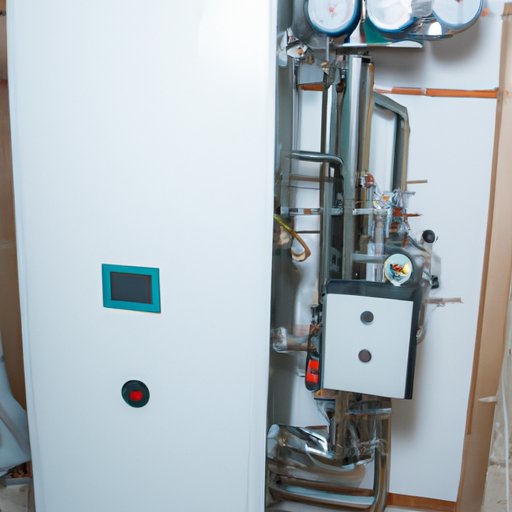Introduction
A boiler is an essential piece of equipment in many industrial and commercial settings. It is a closed vessel in which water or other fluid is heated to produce steam or hot water for heating, power generation, or other purposes. This article will provide an overview of how boilers work, the different types of boilers available, and how they can be used in different environments.
Exploring the Fundamentals of Boiler Operation
In order to understand how boilers work, it is important to first understand the components that make up a boiler system. These components include the burner, combustion chamber, heat exchanger, controls, and safety devices. The burner is responsible for supplying the fuel to the combustion chamber, where the fuel is burned to generate heat. The heat exchanger then transfers this heat to the water or other fluid to create steam or hot water. The controls regulate the temperature and pressure of the system, while the safety devices protect against over pressurization, overheating, and fire hazards.
The type of fuel used in a boiler is also important to consider. Most boilers use natural gas, oil, or propane as the primary fuel source, although some electric boilers are also available. The efficiency of the boiler is another important factor, as it determines how much energy is being used to generate the steam or hot water. Boilers with higher efficiency ratings will use less fuel and cost less to operate.

A Guide to Boiler Types and Their Uses
There are several different types of boilers, each designed for specific applications. Steam boilers are typically used in industrial settings to generate large amounts of steam for power generation or other processes. Hot water boilers are used in residential settings to heat water for domestic use. Electric boilers are also available, though they are not as common due to their lower efficiency compared to other types of boilers.

An Overview of Boiler Maintenance and Troubleshooting
Regular maintenance of boilers is necessary to ensure safe and efficient operation. This includes checking and cleaning the boiler’s various components, as well as inspecting and replacing worn parts. Common problems that can occur with boilers include leaking pipes, low water levels, and clogged filters. Professional services may be necessary to diagnose and address these issues.

The Benefits of Installing a New Boiler System
Installing a new boiler system can provide numerous benefits, including improved efficiency and lower energy costs. Modern boilers are designed to run more efficiently than older models, resulting in reduced fuel usage and associated costs. Additionally, new boilers feature advanced safety features that can help prevent accidents and fires.
Understanding How Boilers Work in Different Environments
Boilers are used in a variety of commercial and industrial applications, such as power plants and factories. They can also be used in residential settings to provide hot water and heat. In all cases, understanding how boilers work is essential for proper operation and maintenance.
Conclusion
Boiler systems are essential components of many industrial and commercial settings. This article has explored the fundamentals of how boilers work, the different types of boilers available, and how they can be used in different environments. Additionally, the benefits of installing a new boiler system and the importance of regular maintenance have been discussed. Understanding how boilers work is key to ensuring safe and efficient operation.
(Note: Is this article not meeting your expectations? Do you have knowledge or insights to share? Unlock new opportunities and expand your reach by joining our authors team. Click Registration to join us and share your expertise with our readers.)
